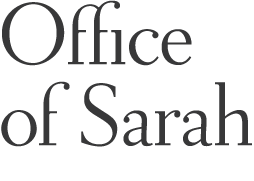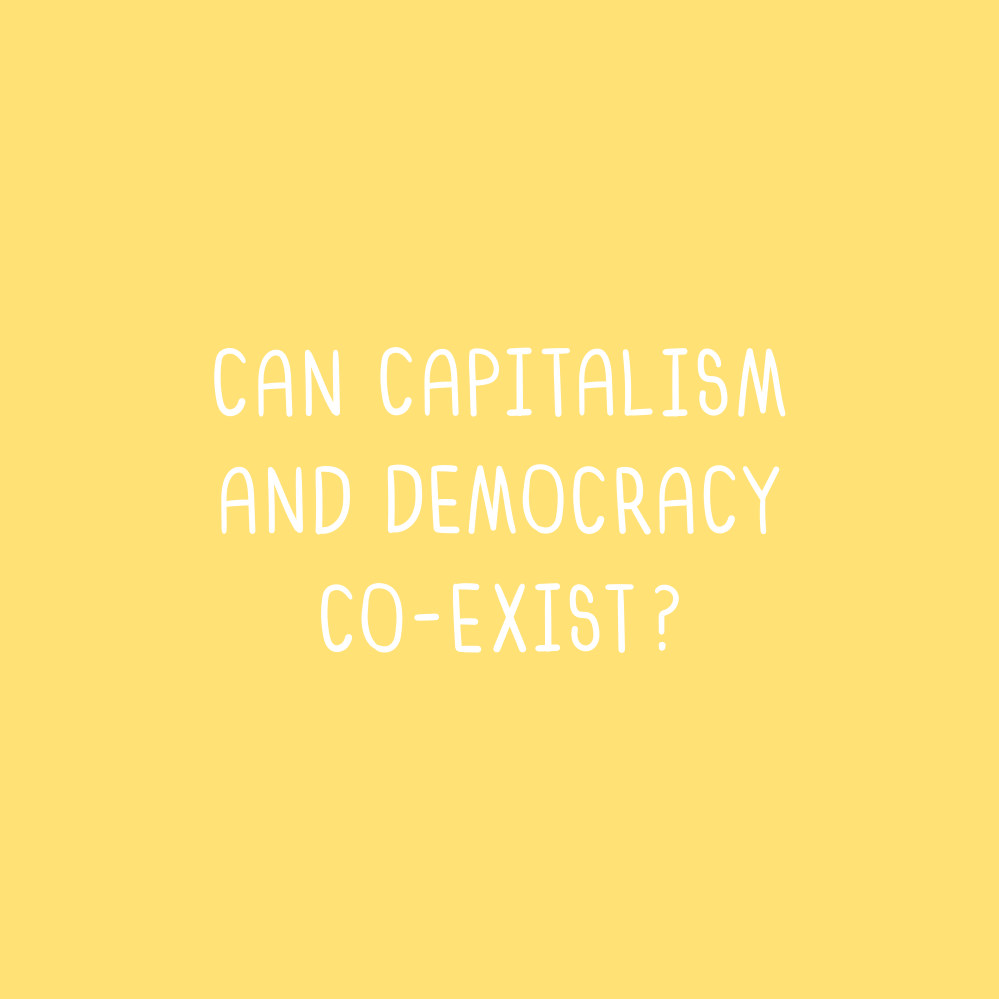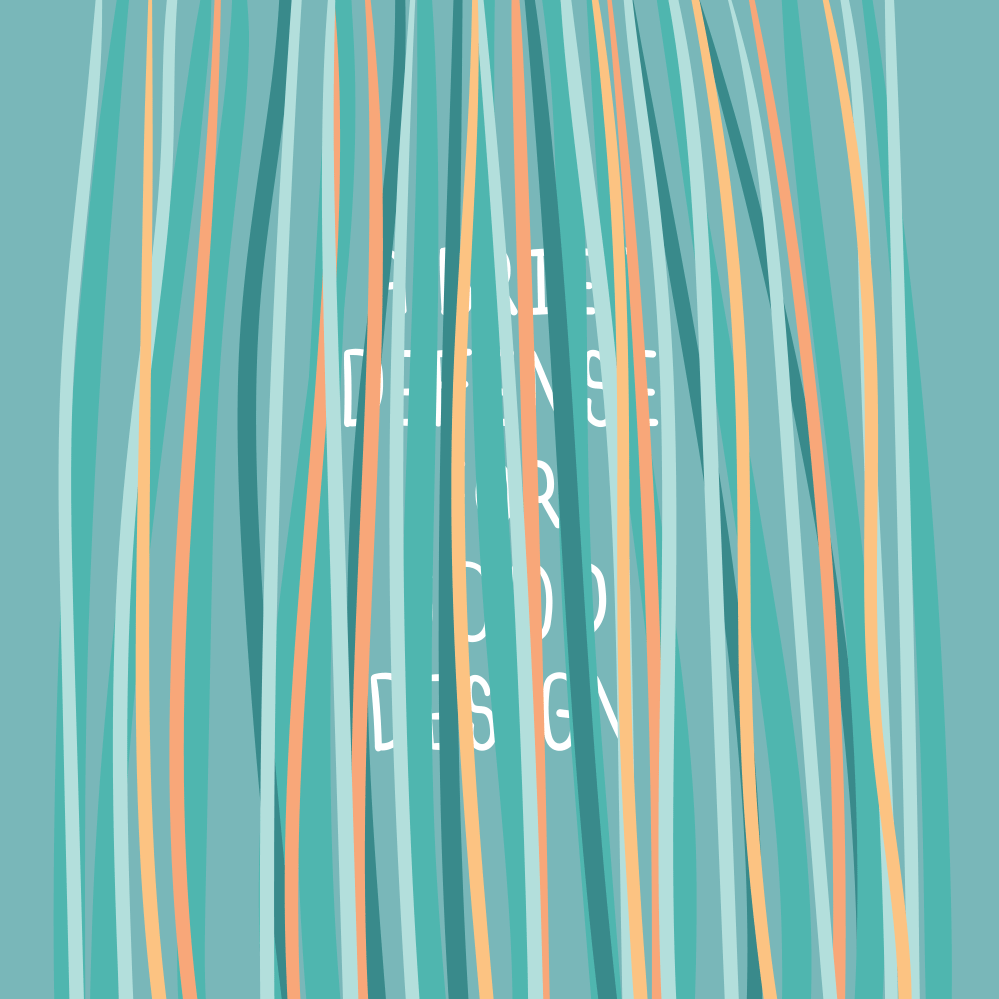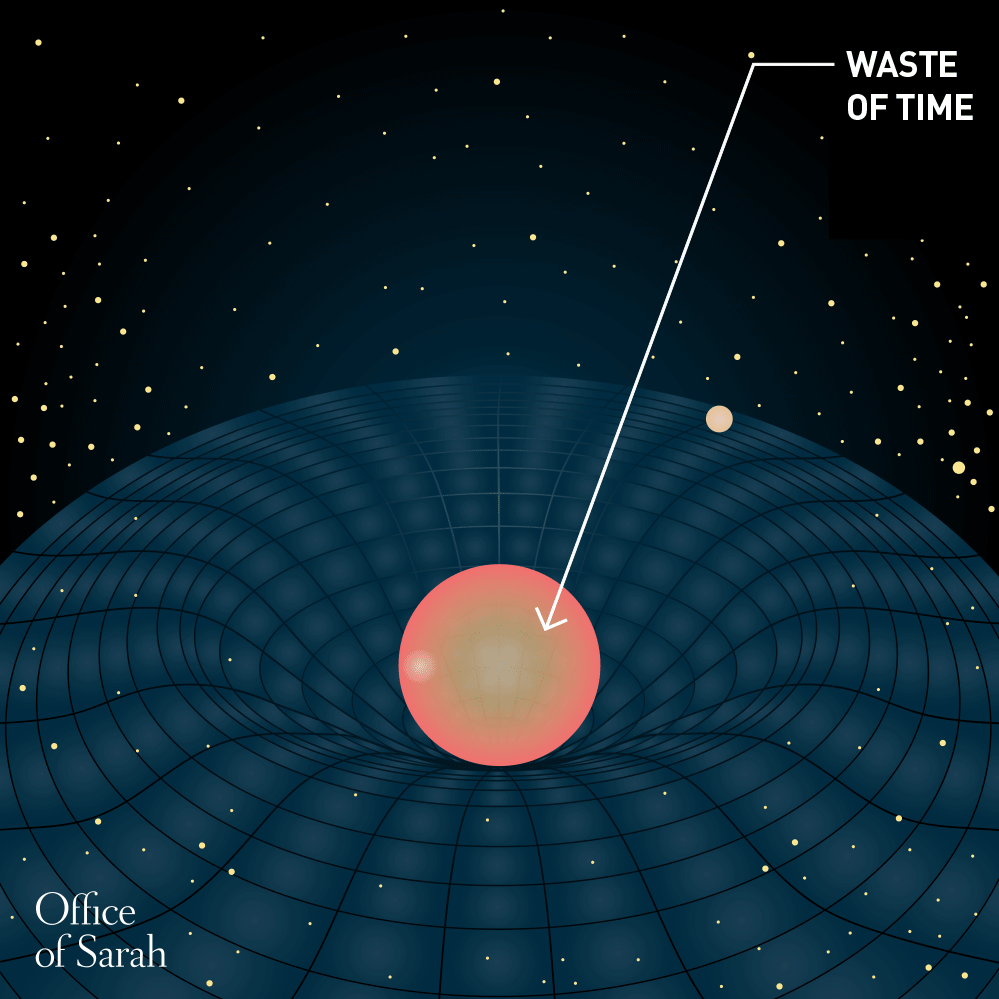Can Capitalism and Democracy Co-Exist?
Capitalism and democracy are a decidedly weird mix. When you really start to put these two ideas side-by-side, you can’t help but notice that they’re contradictory at a basic, foundational level. After all, democracy is a belief system that holds up all humans as being of equal value with equal rights; capitalism holds the profits of a company as its highest value, often accomplished by destroying people, the planet, and often both. One system puts humans first; the other profits.
It makes me wonder… can a society truly be both democratic AND capitalist at the same time?
I’m no economist, but I’m incredibly well-versed in the ways of capitalism. So are you. Aren’t we all experts on capitalism? Here in North America we’ve been coached into its systems from birth.
Take a moment to look at the forces that drive your daily decisions. For example, there are no rent controls in my apartment (or any apartment in my province of Alberta): rent is set by landlords, who can charge whatever they please. Having a credit card is less a choice so much as a necessity, and its interest rates should make anyone with a sense of ethics blush. Or consider why the Alberta Government advocates for the oil and gas industry: is it because they think pipelines and oil sands are healthy for citizens, or artful additions to the landscape? Ha! We all know (in part, because they tell us all the time) that it’s because of the jobs.
People are, indeed, desperate for jobs. But again, I feel compelled to ask why: why are people in a democracy desperate for jobs? Is it primarily because we are eager to serve and improve our communities… or because we are desperate for an income, so we can pay our rent? In other words, which comes first: democracy, or capitalism?
The push for access to jobs is often framed as a democratic goal, but I’m beginning to wonder if it’s just capitalism hiding in plain sight. Certainly there are worthwhile jobs, but often they seem to be the ones people would do without a paycheck: care-taking, raising and teaching children, cleaning things, and playing sports come to mind. But as Bullshit Jobs author David Graeber has noted, many jobs do not contribute to democratic processes or a healthy society. In fact, without a salary attached to them, the value of many jobs becomes mystifyingly hazy – I mean, have you ever heard of a corporate lawyer doing an (unpaid) 12-hour day at the office for the sheer pleasure of protecting a client corporation (from the legitimate concerns of citizens) through the writing of unreadable pages of User Agreements? I suspect that, without their hefty salaries, bankers would leave in droves; the idea of “volunteer” oil execs is laughable. All but the most kindhearted of landlords would disappear, and the ones that remain would be re-branded more accurately as “building caretakers”.
There is nothing inherently democratic about access to jobs. It very much depends, I would argue, on who those jobs were created to benefit. And I’m not talking about the secondary fillers that corporations love to tack-on to make a thing more digestible (like donating to charity or paying “fair” wages): I’m talking primary motivations. Because, without a doubt, the primary motive of capitalism is continuously growing profits for its owners.
Sure, a capitalist business might accidentally do something really kind, useful and life-saving once in a while, but that wasn’t actually their main intent: their main goal is to maximize profit. Therefore on the whole we can safely assume that there’s going to be a LOT of collateral damage over time for anything (or anyone) getting in the way of those returns.
Which begs the question - what exactly does capitalism offer us, as communities? I’ve heard people argue “technology”, but excellent technologies have existed for millennia longer than capitalism (and many inventors are spurred by motivations other than profit). Capitalism has definitely made space for entrepreneurs to create a plethora of cheap throw-away playthings which we humans seem to enjoy consuming – the economists might tell us this is the unstoppable Law of Supply and Demand! But is wanting something a sign that I’m owed it, deserve it, or that it’s a good thing for me, my community, or the planet?
It’s become clear that the entrepreneurial gold-standard we hold up in terms of what’s “ready for market” needs to be raised to include an assessment (and solutions) for the true cost of each entrepreneurial creation. For example, a few weeks ago I wrote about the problems with nuclear power. I would argue that scientists and entrepreneurs needed to find and prove the feasibility of a real solution for the safe disposal of nuclear waste before nuclear power plants could be built. Its cost assessment is woefully incomplete. There’s an inherent short-term thinking to the workings of the “free market” that’s not in our long-term best interest.
The biggest joke (just dawning on me) is the fallacy that we live in a democracy. We (the people) don’t decide how things run. Our elected officials don’t either. Within capitalism, it’s profit motives that decide most things that affect our day-to-day lives. Communities have to fight tooth-and-nail (against highly paid corporate lawyers!) for even the slightest of protections and regulations. “Voting with our dollars” is presented as a powerful, individual democratic right, but it still leaves us caught in a binary: what if we don’t want to be voting with consumer dollars at all? I think a capitalist system will always spell community disaster because of the order of its priorities.
I think what I’m trying to say is: primary intentions matter. If your primary aim is to cut, you might actually help people now and again by total fluke. But if your intention is to draw blood, it’s logical to assume that over time you will create a gaping wound. Logically, this goes the other way too: if your intent is to help people, you might end up hurting them by accident from time-to-time. But if your primary intent remains authentically to help, you will learn and get better and better at helping over time.
It’s not the most elegant analogy, but I would argue that saying a society can be simultaneously capitalist and democratic is tantamount to saying you’re trying to bleed someone dry and help them at the same time. These two realities can’t co-exist in a healthy relationship.
Capitalism is trying to gaslight us into thinking that it’s a healthy part of a democracy. It’s time for us to find a good therapist and sort this shit out.
I didn’t actually read this Harvard Business Review article until I finished writing my blog post, but I highly recommend. It’s a fascinating take from different academics and experts on the question “Do democracy and capitalism really need each other?”







